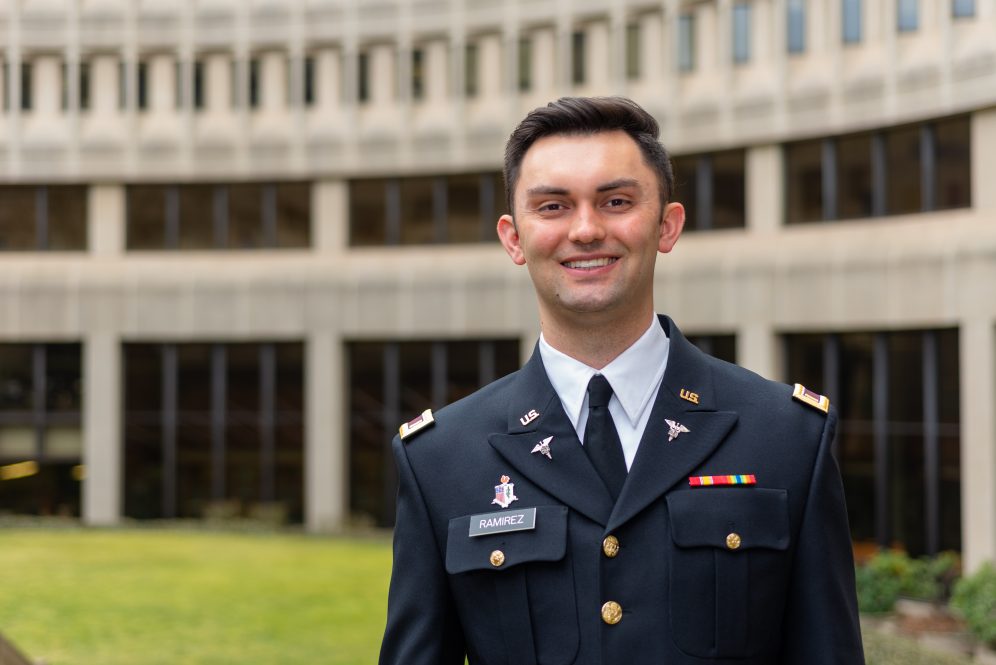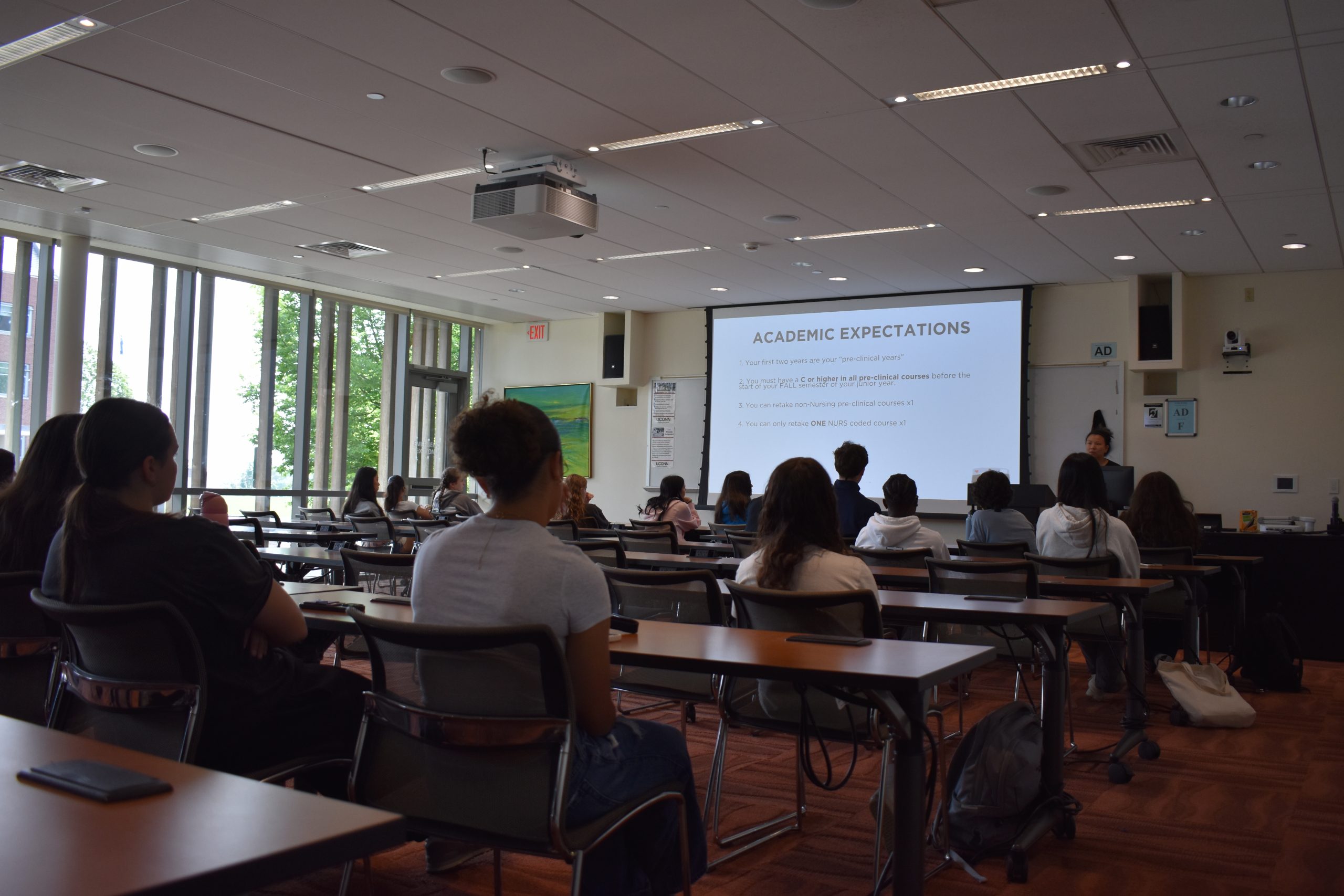Growing up in Salt Lake City, Braxten Ramirez probably never imagined his path in life would lead him 2,300 miles away, to Farmington and UConn. But in his desire to serve others as a physician, he ended up taking that intimidating step, and found himself flourishing.
Ramirez sees the relationship between the patient and the doctor as the heart of the medical experience: in what other field do people literally trust someone else with their lives? As a student at the UConn School of Medicine, he was able to hone that insight alongside his fellow students and influential mentors. Going so far from home might have been a risk, but as he learned, life’s greatest rewards always involve risks.
Why did you choose UConn?
When I was choosing which medical school to attend, UConn had the best reputation. It was intimidating to consider moving across the country after growing up in Salt Lake City through undergrad, but I think it was one of the best decisions I could have made. My wife helped support me through this decision and our relationship has continued to grow throughout our time here in Connecticut and even more now that we have started our little family.
Why did you choose to enter medical school/the field of medicine?
While the cliché response of “desire to serve others” is certainly relevant, the primary driver behind my interest in medicine is the patient-physician relationship. Fostering a relationship with a patient to the point where they’re comfortable with their life in your hands is something that’s unique to medicine. In some scenarios a patient will be meeting a physician for the first time and they will already have this level of trust. Having such a strong impact on a patient’s life is what drove me toward medicine.
What are your plans after graduation?
I will be doing a transitional year at Madigan Army Medical Center in Tacoma, Washington, with plans of pursuing orthopaedics afterwards.
What activities were you involved with as a student?
I was awarded the U.S. Army’s HPSP which paid for my tuition and provided a living stipend. Fortunately the program didn’t require too much time outside of school other than a couple Officer training courses during the time I had off in the summer.
I also played in the men’s and intramural indoor soccer league in Farmington. However, our intramural record (0-10) didn’t reflect the level of enjoyment we got out of the season.
How has UConn prepared you for the next chapter in life?
UConn has a strong network in the Northeast medical community. While I hope to expand this network within the military medicine community, I will always have the deeply rooted connections here in the Northeast.
What’s one thing that surprised you about UConn?
I was surprised by how receptive the patient population was to students. UConn students rotate through most of the facilities throughout the Greater Hartford area. It was extremely rare for a patient to not want a student to help with their care. Growing up in Utah I don’t remember seeing many students in the hospital or being part of my family’s care team, but here in Connecticut it seems to be the opposite where it’s rare to not have a student involved in your care.
Any advice for incoming first-year medical students?
Try to gain as much exposure to various specialties early on in your education. This will be key in networking and getting involved in research projects which are essentially a requirement for competitive specialties. For those that feel military medicine may be for them, I recommend considering the HPSP in your branch choice. However, do not let the financial benefits be the primary driver in making this decision and instead focus on military medicine vs traditional medicine.
Who was your favorite mentor and why?
My favorite mentors were Drs. Tom Fromson of West Hartford Pediatrics and Dom Casablanca of Middlesex Health. I was fortunate to be at West Hartford Pediatrics for my longitudinal care site and quickly learned compassionate patient care from Dr. Fromson. One of my favorite experiences throughout medical school has been bringing my son to my former longitudinal care site for his well-visits.
I worked with Dr. Casablanca through a summer preceptorship between MS1 and MS2. This early clinical exposure established a foundation of knowledge that helped develop clinical scenarios for COrE lectures. In COrE I routinely found myself recalling Dr. Casablanca’s voice covering various topics in his office. This early clinical experience helped me develop a deeper level of knowledge by pairing a physical patient with the pathophysiology we covered in class.
What was it like training to be a doctor during a pandemic?
Training throughout the pandemic has helped me become accustomed to the new norm with the emergence of the COVID pandemic. It’s clear COVID-19 forced drastic changes in the way we practice medicine. While we have made steps toward a more normal everyday life, I believe there are some aspects of medicine that won’t go back to how it was prior to the pandemic. Gaining exposure to this early on in my career has helped prepare me for greater success.



